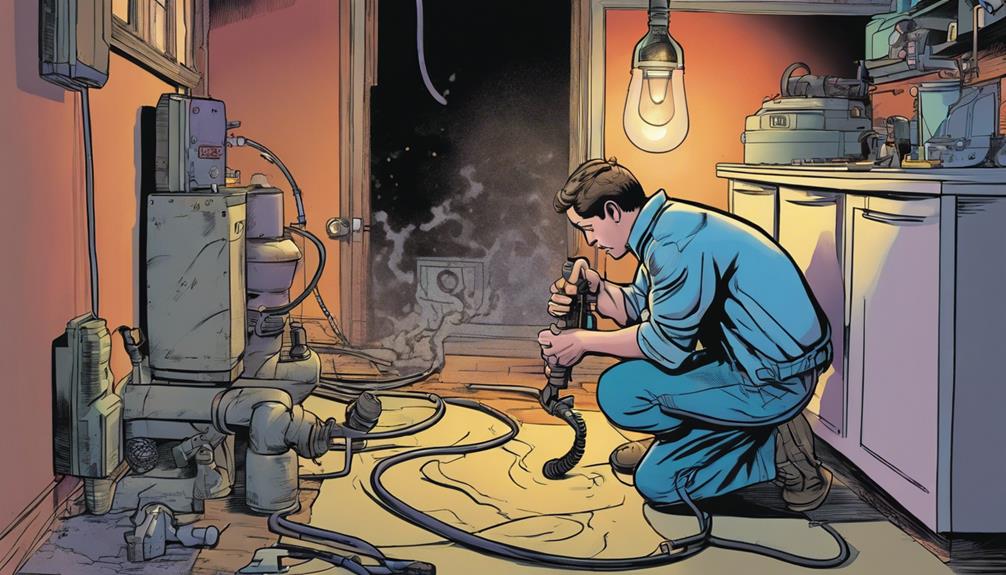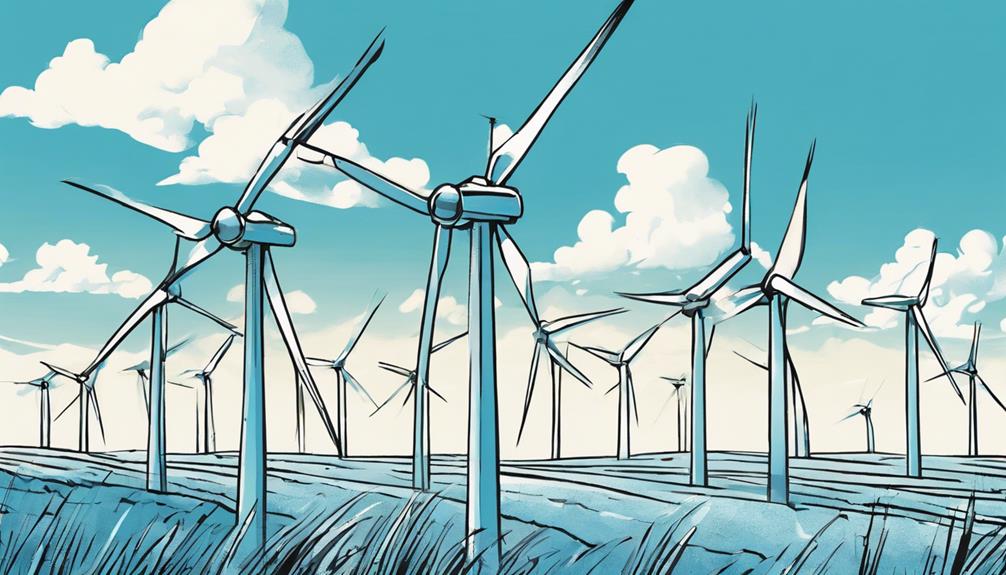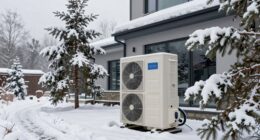When it comes to preventing gas leaks, I know that prompt detection and reporting are a matter of life and death. Ignoring the warning signs can lead to devastating consequences like fires, explosions, and health hazards. That's why I take gas leak detection seriously, recognizing telltale signs like the smell of rotten eggs, hissing sounds, and dead plants. I know that immediate action is vital, so I get out of the area and call the gas company or emergency services. By following established safety protocols and measures, I can guarantee my safety and prevent potential disasters. There's more to learn about staying safe from gas leaks, and I'm about to find out.
Key Takeaways
- Regular maintenance helps identify potential gas leak issues, allowing for prompt action and necessary repairs to prevent disasters.
- Recognizing telltale signs like rotten egg smell, hissing sounds, and dead plants enables swift reporting and emergency response.
- Relying on professionals for gas leak detection and repairs ensures safety, as attempting to fix leaks independently can lead to dangerous situations.
- Following established reporting procedures and protocols is critical for prompt emergency response and preventing severe consequences.
- Educating oneself on gas leak signs and safety precautions enhances preparedness and reduces the risk of fires, explosions, and health hazards.
Gas Leak Detection and Reporting
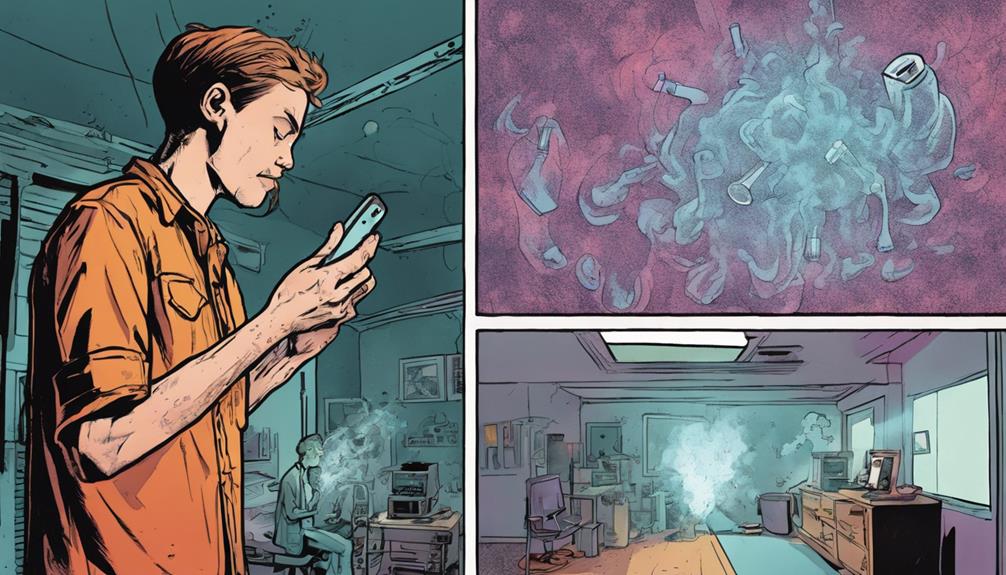
When I suspect a gas leak, I know to trust my senses and report it immediately, as the smell of gas is a telltale sign that something is amiss.
Natural gas is odorless, but mercaptan, a harmless chemical, is added to give it a distinctive rotten egg smell, making it detectable.
I've learned that gas leaks can be caused by corrosion, pipeline damage, or appliance issues, so regular maintenance is vital.
Ignoring or delaying reporting can lead to severe consequences, including fires and explosions.
I know that prompt reporting allows for timely action and necessary repairs, ensuring safety for myself and those around me.
I take gas leak detection and reporting seriously, as it's a matter of life and death.
Recognizing Gas Leak Signs

One critical step in preventing gas leaks is educating myself about the telltale signs, including the pungent smell of rotten eggs or sulfur, which can indicate a potential gas leak. I need to be aware of other indicators too, such as hissing sounds near gas lines, bubbles in wet areas, or dead plants near pipelines.
Regular maintenance helps in identifying and addressing potential gas leak issues. I must take prompt action upon detecting gas leaks to guarantee safety. By recognizing these signs, I can prevent accidents and ensure safety for everyone involved.
It's crucial to be proactive and informed to avoid the risks associated with gas leaks.
Immediate Action and Response
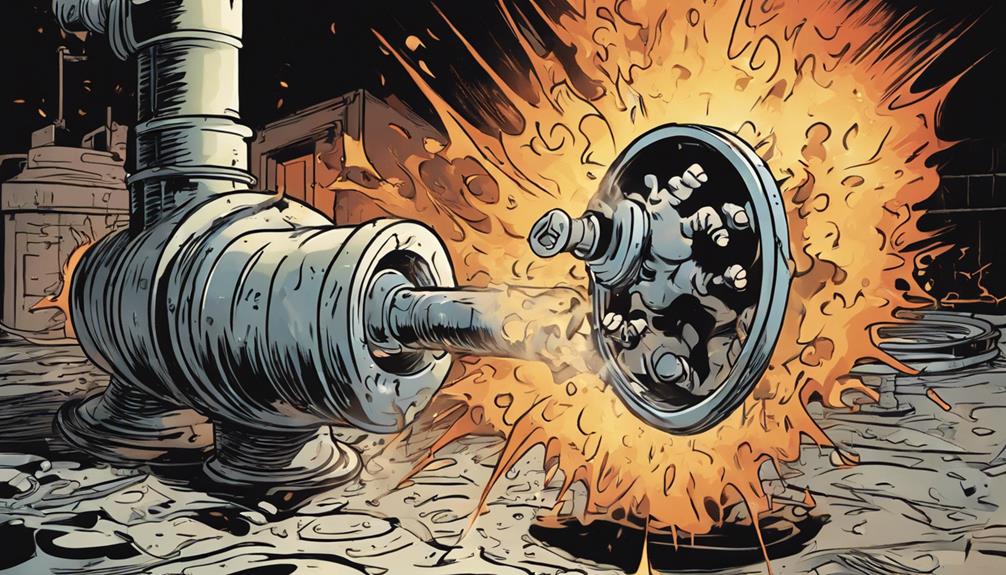
I must take immediate action upon detecting a gas leak, as every minute counts in preventing a potential disaster. Gas leaks can quickly escalate into emergency situations if not reported promptly.
As soon as I suspect a gas leak, I should get out of the area immediately and call the gas company or emergency services.
Here's what I should do in case of a suspected gas leak:
- Get out of the area immediately and move to a safe location
- Call the gas company or emergency services, such as 911, to report the leak
- Avoid using electrical appliances or switching on lights, as they can ignite the gas
- Wait for the experts to arrive and handle the situation
Safety Protocols and Measures

Relying on professionals for gas leak detection and repairs ensures safety and proper handling, as they have the necessary expertise and equipment to identify and fix potential issues.
I've learned that following established reporting procedures and protocols is critical for a prompt emergency response. It's important to educate myself on gas leak signs and safety precautions to enhance my preparedness and response.
I've realized that attempting to fix gas leaks independently can lead to dangerous situations, so it's best to leave it to the experts.
Gas Leak Hazards and Risks
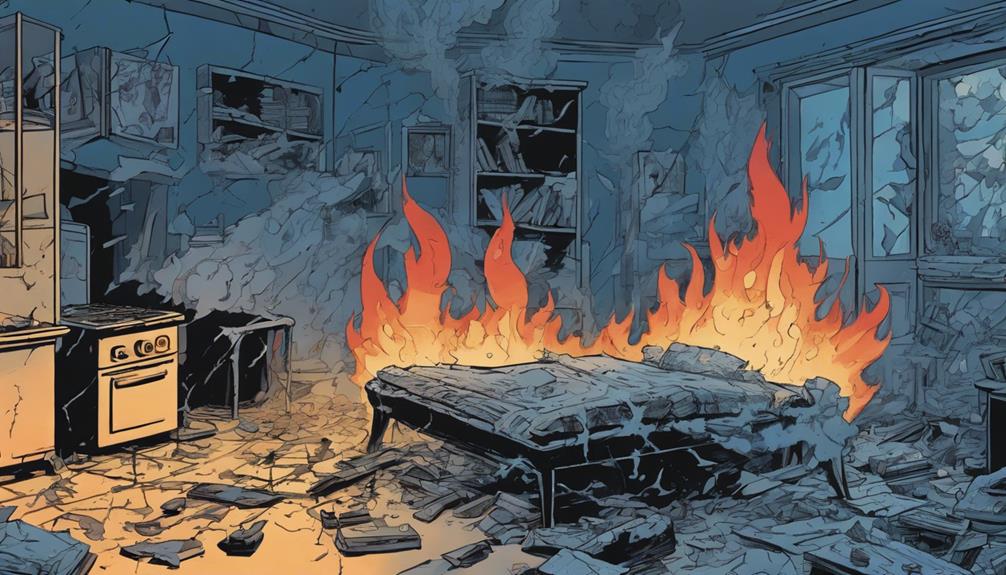
As I emphasize the importance of gas leak detection and reporting, I must also highlight the severe consequences of ignoring or delaying them. Prompt detection and reporting of gas leaks are essential, as ignoring or delaying them can lead to severe consequences, including fires, explosions, and health hazards that can endanger lives.
Some of the hazards and risks associated with gas leaks include fire hazards. Gas leaks can ignite, causing devastating fires that can destroy properties and claim lives.
Health dangers are also a concern. Inhaling natural gas can cause respiratory problems, nausea, and even loss of consciousness.
Explosion risks are another critical issue. Accumulation of gas in enclosed spaces can lead to catastrophic explosions.
Additionally, gas leaks can result in environmental damage. They can contaminate soil and water, causing long-term ecological damage.
Frequently Asked Questions
What Are the Most Common Causes of Gas Leaks in Residential Areas?
'When I think about gas leaks in residential areas, I know they're often caused by corrosion, pipeline damage, or appliance issues – that's why regular maintenance is essential to prevent these hazards.'
Can Gas Leaks Occur in Propane-Powered Appliances and Equipment?
Like a ticking time bomb, hidden dangers lurk in propane-powered appliances and equipment, which can indeed develop gas leaks, often due to faulty connections, worn-out hoses, or improper installations, putting lives at risk.
How Often Should Gas Pipelines and Appliances Be Inspected for Maintenance?
'I make it a habit to have my gas pipelines and appliances inspected regularly, ideally every 6-12 months, to catch potential issues before they become major problems and safeguard my safety.'
Are There Any Specific Safety Measures for Gas Leaks in Commercial Settings?
When it comes to commercial settings, I make sure to implement additional safety measures, like regular inspections, employee training, and clear emergency protocols to prevent and respond to gas leaks effectively.
Can Gas Leaks Be Detected Using Technology, Such as Sensors or Alarms?
'I'm excited to explore if tech can help detect gas leaks Yes, sensors and alarms can detect gas leaks, providing an added layer of safety, especially in commercial settings where risks are higher.'
Are Gas Leaks a Common Concern When Using Geothermal Energy in RimWorld?
Gas leaks are not a common concern when using geothermal energy in RimWorld, as long as proper precautions are taken. Following a geothermal energy extraction guide can help ensure the safe and efficient use of this renewable energy source.
How Do Wind Turbine Propeller Length and Design Affect the Risk of Gas Leaks?
The wind turbine propeller impact design plays a crucial role in minimizing the risk of gas leaks. Longer propeller blades can generate more power, but they also increase the potential for gas leaks. Therefore, the design must consider both efficiency and safety to mitigate any potential hazards.
Conclusion
As I wrap up my exploration of gas leak prevention, I'm reminded that some might think, 'It won't happen to me.' But the truth is, gas leaks can happen to anyone, at any time.
That's why it's important to stay vigilant and take proactive measures to guarantee our safety. By recognizing the signs, reporting promptly, and implementing safety protocols, we can prevent disasters and protect ourselves and our loved ones from the silent threat of gas leaks.
